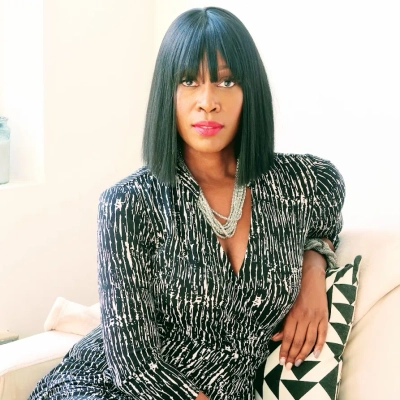Mentorship plays a crucial role in shaping successful careers and businesses. This article presents valuable insights from experienced business coaches on the transformative power of mentorship. From accelerating growth to fostering a supportive culture, discover how mentorship can drive personal and organizational development.
- Mentorship Accelerates Growth Through Trusted Guidance
- Internal Mentorship Fosters Culture of Support
- Three C’s Framework Shapes Effective Mentorship
- Build Your Network and Pay It Forward
- Coaching and Mentorship Reinforce Personal Growth
- Mentorship Develops Founder’s Internal Compass
- Guide Clients to Find Valuable Mentor Relationships
- Mentorship Clarifies Thinking and Challenges Assumptions
- Integrate Mentorship to Drive Organizational Learning
- Mentorship Frames Better Questions at Inflection Points
- Collaborative Mentorship Unlocks Leadership Breakthroughs
- Create Safe Environment for Learning and Growth
- Mentorship Synthesizes Knowledge Beyond Academic Instruction
- Empower Women Founders Through Strategic Mentorship
- Holistic Mentorship Bridges Ambition and Execution
- Mentorship Redefines Rules for Female Entrepreneurs
Mentorship Accelerates Growth Through Trusted Guidance
Mentorship plays a foundational role in business. It’s not just about transferring knowledge, but also about building confidence, offering perspective, and accelerating growth through trusted guidance.
In my coaching, I often approach mentorship as a two-way relationship grounded in real-world problem-solving. For example, while working with a mid-level engineering manager at a fintech client, I helped him navigate team dynamics during a rapid scaling phase. Rather than prescribing solutions, I shared similar experiences and asked reflective questions that led him to his own insights.
Over time, he began mentoring others, applying the same approach. This ripple effect is where mentorship proves most powerful; it fosters long-term growth, not just for individuals, but across entire teams.
 Sergiy Fitsak
Sergiy Fitsak
Managing Director, Fintech Expert, Softjourn
Internal Mentorship Fosters Culture of Support
Mentorship within the team has likely been one of the most valuable drivers of growth for us. While it’s easy to view mentorship as something formal or external, some of the most meaningful learning happens informally, through daily interactions and shared problem-solving. Especially in a startup environment like ours, internal mentorship helps build confidence, accelerate learning, and create a culture where people support each other.
We’ve always believed in giving people ownership early, but with that comes the need for support. One way we’ve incorporated internal mentorship into the culture is by pairing senior team members with newer hires during the first few product cycles. It’s not about micromanaging; it’s about creating space for questions, context, and real-time feedback while someone’s still finding their footing.
I recall a case where a junior product designer joined the team and was assigned a rather challenging feature to lead. Instead of appointing someone to oversee every detail, we paired them with one of our more experienced designers who had gone through a similar launch months earlier. They didn’t work side by side every day, but they checked in regularly, shared prototypes, flagged edge cases early, and discussed design decisions before hitting any roadblocks.
The outcome wasn’t just a stronger feature launch. It resulted in a confident, capable designer who progressed rapidly and ended up mentoring someone else only a few months later. This kind of cycle is what makes internal mentorship powerful. It creates momentum. You build trust, shared standards, and a culture where people aren’t afraid to ask for or offer help.
 Jamie Frew
Jamie Frew
CEO, Carepatron
Three C’s Framework Shapes Effective Mentorship
Mentorship plays a critical role in business, shaping careers and fostering confidence, resilience, and long-term growth. I view mentorship through the lens of what I call the Three C’s:
Coach – someone who pushes you outside of your comfort zone and keeps you focused on your goals.
Counselor – someone who creates a safe space to listen, understand, and offer perspective.
Cheerleader – someone who celebrates your wins (big and small) and reminds you of your potential when self-doubt creeps in.
This framework has guided how I mentor others and seek mentorship for myself. I believe you don’t need just one mentor; you need a team that brings these three roles to life.
Mentorship isn’t just a value; it’s a pillar. Through our non-profit, we support women entrepreneurs with the tools, guidance, and community they need to thrive. We pair founders with seasoned professionals who not only provide strategic input but also serve as a sounding board through the inevitable ups and downs of entrepreneurship.
One example that sticks with me is a young founder who came to us with a strong product but no clear path to scale. I took on a personal mentorship role, acting as her Coach by helping her structure a go-to-market plan, as her Counselor when self-doubt made her second-guess decisions, and as her Cheerleader when she secured her first major partnership. Watching her evolve into a confident, data-driven leader was one of the most rewarding experiences of my career.
Mentorship is never one-size-fits-all. It’s about meeting people where they are and showing up consistently. And it’s that philosophy, grounded in empathy and accountability, that I bring to every mentorship and coaching relationship I have.
 Kim Lawton
Kim Lawton
Founder and CEO, Enthuse Marketing Group
Build Your Network and Pay It Forward
Bob Proctor once said, “A mentor is someone who sees more talent and ability within you than you see in yourself, and helps bring it out of you.” I couldn’t agree more.
Looking back on my career, I have been fortunate to have three mentors — though they might not even realize the impact they had on me. Some opened doors for me without ever meeting me in person, simply because they believed in my resume and saw potential in my background. Others offered me opportunities because they valued my education and appreciated my character. As I proved myself to be a trustworthy team member, they took me along, no matter where their careers took them.
So, how do you find mentors? In my experience, it happens organically. A mentor could be a family friend, a former boss or manager with whom you built a strong rapport, or a senior leader in your company whom you admire.
When it comes to approaching a potential mentor, I believe it is important to do so with genuine curiosity about their work — not just with personal gain in mind. Show a willingness to add value, even in ways they have not asked for, and be open to learning from them. Offer your help whenever you can. Then, when the time feels right, you can ask for their guidance or even explore job opportunities.
For those starting in finance, I always encourage them to build their network early — attend industry conferences, organize events, write articles to demonstrate their passion and expertise, and above all, commit to being a lifelong learner.
And when you are in a position to give back, don’t hesitate. Become a mentor yourself. Join mentorship programs in your field, serve as a judge in competitions, or volunteer to speak at schools. Sharing your knowledge — especially around financial literacy — is more important than ever, as the world moves faster and competition intensifies.
 Marianne O
Marianne O
Co-Founder and Portfolio Manager, Lumen Global Investments
Coaching and Mentorship Reinforce Personal Growth
Mentorship involves walking alongside someone as they step into their potential. In my work with the SHRM Mentorship Program and the Women in Tech initiative at Miami Dade College, I support individuals who are motivated, capable, and ready to grow — but who may benefit from a thought partner as they navigate their next steps.
As an ICF-level coach, I create a space for people to think critically, explore options, and make their own decisions, plans, and actions. I trust in their ability to find the right path for themselves. However, I also recognize that there are moments where mentorship is crucial — where a bit of guidance, a shared experience, or a practical suggestion can help them move forward with more clarity and confidence.
One example that often comes to mind is an emerging HR professional who was recently promoted and experienced the classic imposter syndrome. She questioned: Do I know enough? Can I keep up? What if I make a mistake? Coaching helped her explore her limiting beliefs, challenge these assumptions, and grow in confidence. Mentorship came into play as we reviewed her resume, trained via scenario reviews, and worked through how to maintain presence and confidence in herself. It was never about giving her the answers — it was about reinforcing that she had everything she needed to succeed.
Ultimately, both coaching and mentorship are grounded in belief — belief in the person, their capacity to grow, and their ability to lead their own journey. I’m simply there to support that process with intention and care.
 Nurdes Gomez
Nurdes Gomez
Director of People Operations, eMed
Mentorship Develops Founder’s Internal Compass
Mentorship is the backbone of long-term, sustainable business growth — especially for women founders navigating complex, often male-dominated industries. I view mentorship not as top-down instruction but as a strategic partnership. In my coaching and programs, I incorporate mentorship into the framework by offering micro-strategy reviews, media critiques, and founder-led office hours that prioritize clarity and momentum.
For example, one client approached me unsure of how to position herself as a thought leader. Instead of providing her with a templated response, we collaboratively developed a media visibility map tailored to her values and area of expertise. Within two months, she was featured in two national outlets and secured her first podcast interview.
In my perspective, mentorship is about access, confidence, and anticipating future challenges. It’s less about hand-holding and more about developing a founder’s internal compass. I assist women in recognizing that they don’t need to be louder — they need to be more precise. That shift alone can be revolutionary.
 Kristin Marquet
Kristin Marquet
Founder & Creative Director, Marquet Media
Guide Clients to Find Valuable Mentor Relationships
I truly believe mentorship is a cornerstone of success in business; it’s like having a compass when you’re navigating uncharted waters. It’s not just about getting advice; it’s about learning from someone who’s already walked a similar path, someone who can offer insights you just won’t find in a textbook. I think it’s invaluable to have that perspective, to see challenges through someone else’s experienced eyes. It can save you so much time and help you avoid common pitfalls.
In my own coaching, I weave in the principles of mentorship by encouraging my clients to seek out and build those invaluable relationships. I’ll often share anecdotes from my own experiences, offering a glimpse into how I’ve tackled similar situations. For example, I recently worked with a client who was struggling to scale her small business. We talked through the importance of finding someone who’d successfully scaled their own enterprise, someone who could offer real-world advice on managing growth and delegating effectively. It wasn’t about me telling her what to do, but about guiding her to identify and connect with the right mentors who could illuminate her path.
 Cindy Cavoto
Cindy Cavoto
Founder, CindyCavoto.com
Mentorship Clarifies Thinking and Challenges Assumptions
For me, mentorship isn’t just a leadership tool but also an accountability mirror. In my perspective, the best mentors don’t give answers. They give clarity. They help founders see their own thinking more clearly and challenge the gaps between intention and execution.
In my coaching, I don’t try to be the expert in their business. I try to be the person who asks the question they’ve been avoiding.
One client I worked with was burning out because they couldn’t delegate. Their instinct was to hire more people and build more processes, but we slowed it down and looked deeper. What we found wasn’t a systems issue but a trust issue. They were holding on too tight because they hadn’t fully defined what “done right” looked like. So we rebuilt their delegation framework from scratch, with coaching focused not just on workflows but on confidence and control.
That’s what mentorship looks like to me. It’s not about having all the answers but about helping someone ask better questions, until they find their own answers with conviction.
 Jeff Mains
Jeff Mains
Founder and CEO, Champion Leadership Group
Integrate Mentorship to Drive Organizational Learning
I strongly believe mentorship plays a crucial role in business success, unlocking hidden potential in individuals and driving innovation, growth, and retention in organizations.
My key insights on mentorship and how I practically incorporate it into my coaching include:
1. Mentorship Accelerates Learning
Mentorship provides a structured environment to share experiences and best practices, accelerating leaders’ growth and helping them navigate challenges. Good mentors don’t give easy solutions; they challenge mentees’ assumptions, encouraging deeper insights.
2. Mentorship Reinforces a Culture of Growth
Embedding mentorship within an organization signals that continuous learning is deeply valued. This creates open communication, authentic dialogue on career goals, and a culture of continuous improvement, accountability, and reflection.
How I Integrate Mentorship into Coaching:
Active Listening & Coaching: I combine mentorship and coaching by listening carefully and relating relevant personal experiences or industry examples. I ask thought-provoking questions, selectively share reflections, and guide mentees to make informed decisions independently.
Clear Goal Setting: I intentionally include mentorship by defining clear objectives, targeted dialogue, periodic reflection, and experiential action steps (“Try applying this next week, and let’s discuss your insights”).
Encouraging Mentees to Become Mentors: I actively encourage mentees to “pay it forward” by mentoring others. This practice strengthens their leadership, reinforces their own learnings, and directly contributes to the organization’s mentorship culture.
In one scenario, I coached an unemployed individual who had state funding to obtain Lean Problem-Solving certification:
Challenge: She needed a meaningful problem-solving project. We identified her employment situation, working on solving “finding a new job leveraging her finance skills and desire to help others.”
Approach: Rather than simply telling her to keep hunting on online job sites, I guided her to clearly articulate her current skills, situation, and genuine desires. This clarified that her previous approach was misdirected, and she refocused her energy.
Outcome: She updated her resume, highlighting her Lean Problem-Solving certification and newly focused goals. By targeting previously overlooked local opportunities, she secured a great job combining finance and teamwork to solve company-wide issues.
 Mike Loughrin
Mike Loughrin
CEO and Founder, Transformance Advisors
Mentorship Frames Better Questions at Inflection Points
Mentorship serves as the backbone of sustainable business growth and leadership development. We view it as a bidirectional relationship where knowledge flows both ways, creating value for mentor and mentee alike. Our coaching framework integrates mentorship through structured pairing programs that connect emerging leaders with seasoned executives. This approach accelerates skill development while preserving institutional knowledge within organizations.
We implemented this philosophy with a mid-sized tech company experiencing rapid expansion. The CEO struggled with delegation as the team grew from 15 to 60 employees. We paired department heads with external industry veterans who had successfully scaled similar operations. Weekly sessions focused on practical challenges: communication strategies, decision-making frameworks, and team management techniques. Within six months, the CEO reported improved confidence in leadership decisions and better team performance metrics. The mentors gained fresh perspectives on current market trends and innovative approaches from their mentees, creating mutual value that strengthened both parties’ professional networks.
 Thulazshini Tamilchelvan
Thulazshini Tamilchelvan
Content Workflow Coordinator, Team Lead, Ampifire
Collaborative Mentorship Unlocks Leadership Breakthroughs
Mentorship in business is a transfer of context. People often think mentors are there to give answers; however, the best ones frame better questions. In coaching, I use mentorship as a way to challenge assumptions while building trust—helping someone see angles they missed. This becomes especially useful when someone’s at an inflection point—a new role, or making a high-stakes decision.
Mentorship works best when it’s EARNED — not assumed. You’re not the expert in someone else’s life or business. You’re just temporarily useful because you’ve seen similar situations. I treat every coaching session as a snapshot in a longer reel; sometimes you pause, sometimes you rewind, but your job is to reflect back what might otherwise go unnoticed. That’s where the real leverage lies.
 Brandon George
Brandon George
Director of Demand Generation & Content, Thrive SEO Agency
Create Safe Environment for Learning and Growth
Mentorship has played a huge role in both my personal growth and the evolution of my company. I see it not as a one-way transfer of knowledge, but as a collaborative relationship where both sides learn and grow. In business, especially in creative industries like ours, having someone who has walked the path before you — or even just beside you—can make all the difference when you’re navigating uncertainty, making hard decisions, or trying to scale with intention.
In my coaching, I focus less on giving direct answers and more on helping people ask better questions. One example: I worked with a founder who was struggling to delegate as their team grew. Rather than just hand over a playbook, we dug into the “why” behind the resistance. Through that process, they discovered it wasn’t a systems issue — it was a trust issue. That breakthrough didn’t just solve one bottleneck; it shifted how they lead across the board. That’s the kind of clarity mentorship can unlock when it’s built on trust and honesty.
 Vin Thomas
Vin Thomas
Founder and Creative Director, Fixel Design Agency
Mentorship Synthesizes Knowledge Beyond Academic Instruction
We consider mentorship as part of the way we work, rather than a specific set of formal, structured guidelines. We try our best to create a down-to-earth environment, where people feel comfortable making mistakes, asking questions, and learning in real time. We find that more often than not, this happens when people feel safe to try, not when they are under pressure to get everything right straight away.
Rather than coaching from a distance, we involve the whole team holistically. Support comes through everyday moments — think of things like listening to a call, sharing a quiet word after a tough lead, or helping someone find their own style instead of forcing a script. These moments are honest, human, and grounded in trust.
One example that stands out is a new starter who had the skill but lacked confidence. Instead of pushing harder, we slowed down, tried to listen together, and helped them tune into what felt natural. With time and encouragement, they found their rhythm with the team; not by being told what to do, but by being supported through the learning process.
 Lauren Couperthwaite
Lauren Couperthwaite
Business Development Specialist, Newton Fox
Empower Women Founders Through Strategic Mentorship
Mentorship is a significant component of our academic practice. An inadequately prepared tutor or teacher merely instructs a student on what to think and how they arrived at that answer. The exercise remains purely academic. That’s why our philosophy is rooted in mentorship. It’s not just about helping students find the answer or become better writers. It’s about helping them become better people — more confident, more courageous, more persuasive, and so on.
Teaching is about demonstrating. Mentorship is about synthesizing. A good mentor exposes their protégé to a world of concepts they didn’t know they didn’t know. In my college admissions practice, it’s not my job to dictate to students which schools they should apply to or how to craft their applications for success. Instead, it’s my job to help students discover the aspects of themselves that ignite their passion — and then build their college choices around that.
 Matt McGee
Matt McGee
Founder, MRM Education
Holistic Mentorship Bridges Ambition and Execution
After exiting BondiBoost to private equity firm Gauge Capital, I became deeply committed to sharing what I’d learned, especially with other women building product-based businesses. So often, female founders (interestingly of skincare brands) don’t have access to the same mentorship, funding opportunities, or insider conversations. That’s why mentorship isn’t just part of my coaching; it’s embedded in every layer of it.
I work closely with female founders to help them scale with confidence by bringing strategy, structure, and the kind of real-world insight that only comes from doing it yourself. From shaping go-to-market plans to preparing for investment conversations or global expansion, I guide them with the same intensity and clarity that built BondiBoost into a multi-figure brand.
For me, mentorship is about more than advice; it’s about helping women rewrite the rules and back themselves, unapologetically.
 Alexandra Jakob
Alexandra Jakob
Founder/CEO, Globe Wealth
Mentorship Redefines Rules for Female Entrepreneurs
Mentorship is the bridge between ambition and execution. As an entrepreneurial life strategist, I believe mentorship isn’t just about giving advice — it’s about offering perspective, accountability, and belief when the entrepreneur is running low on all three.
In my coaching, I don’t just mentor from a pedestal — I partner with my clients. I incorporate mentorship by helping them see both the business strategy and the emotional patterns that may be holding them back. It’s a holistic approach because you can’t scale a business if your mindset is stuck in survival mode.
One example: I worked with a new founder who had the skills but kept sabotaging opportunities out of imposter syndrome. Rather than just giving her tactical steps, I helped her reframe her self-worth and leadership identity. Within 90 days, she closed her first five-figure client and launched a group program that sold out.
Mentorship done right isn’t just about telling someone what to do — it’s about helping them become the person who can do it.
 Lorene Cowan
Lorene Cowan
Founder, The Experts Tribe

